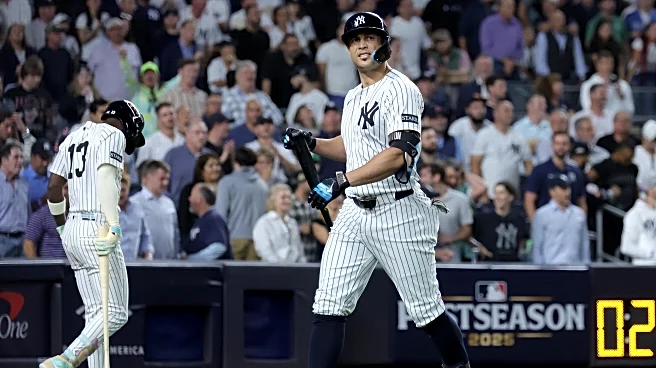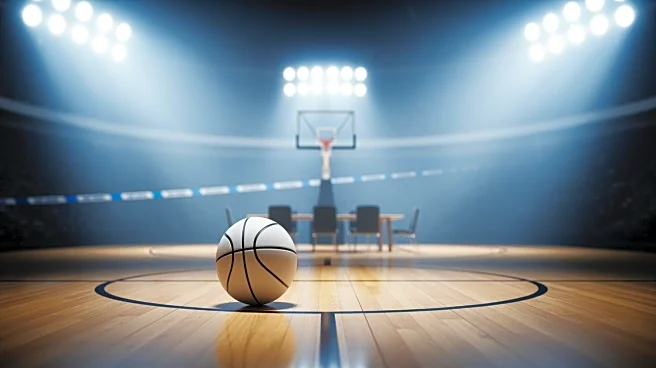Let’s not waste any time on frivolities. Only one stat, in my opinion, truly matters here tonight.
With the bases loaded and nobody out, MLB teams have scored an average of 2.38 runs in an inning dating back four seasons. The Yankees had the bases loaded and nobody out in a two-run game in the bottom of the ninth in the first game of the Wild Card Series… and scored zero.
We could conduct a full autopsy on a putrid offensive effort through the first eight frames of this game, best illustrated by four
hits, zero walks, and 17 straight batters sent down in order after Anthony Volpe’s home run in the second inning — the Yankees’ only scoring. We could spill ink on another poor show from the Yankee bullpen, who fumbled their narrow lead and allowed the Red Sox to expand theirs in the ninth. Indeed, we have. But it all pales in comparison to the biggest travesty of the Yankees’ season to date: getting the dream scenario to win a ballgame, then spontaneously exploding into silly string and confetti. Among other gruesome visuals.
Paul Goldschmidt and Aaron Judge began the ninth inning with back-to-back singles, just as they did all the way in the top of the first inning when the Yankees threatened Red Sox ace Garrett Crochet with a crooked number while the night was young. In that frame, a Cody Bellinger strikeout preceded a rally-killing double play ball from Giancarlo Stanton — a massive missed opportunity to seize early initiative on the scoreboard as well as establish an edge psychologically. This time, the Bombers actually managed a third hit, a blooper to left center from Bellinger.
The Yankees had speed waiting on their bench. In particular, Jasson Domínguez would be the perfect pinch-running option to replace the ponderous Goldschmidt. Instead, Boone left the veteran first baseman in the game. Goldschmidt was caught in an awkward spot on Bellinger’s hit, as Boston’s Ceddanne Rafaela nearly ran the ball down. It can be convincingly argued that no Yankee could have scored from second on that ball unless they were taking the ultimate risk and burning for home no matter what. But the decision not to lift Goldschmidt would prove more indefensible later on.
So here we are. Bases loaded, nobody out. A closer in Aroldis Chapman whose postseason meltdowns in pinstripes remain his enduring legacy in the Bronx. Boston’s backs against the wall. Boundless potential for a legendary highlight. Cold-hard probability predicts at least a tied game. What went wrong?
First, a horrid plate appearance from Stanton, whose first-inning double play played a big part in creating this mess. He immediately fell behind 0-2, as several Yankees did throughout the night. After a foul, Chapman threw a splitter over the middle of the plate: 92.1 mph, damn near middle-middle. Stanton swung straight through it for strike three.
How many times in years past have we seen a pitch like that from Chapman get blown to smithereens at the Yankees’ expense? And yet, when the same opportunity presented itself to Stanton, the Yankees’ playoff hero of yesteryear, the result was nothing but a stiff breeze on a late Tuesday night.
Next up came Jazz Chisholm Jr., who was making his first plate appearance of the game. Aaron Boone’s plan of starting a righty-heavy lineup then inserting his quality lefty bats as the game progressed was foiled by the exploits of Crochet, who ripped through 7.2 innings and singlehandedly built the bridge to Chapman. Thus Chisholm did not get the relatively comfortable at-bat off the bench against a right-handed pitcher, but a fight for his life against triple-digit velocity from the portside. Unsurprisingly, Jazz fouled off his share of pitches, looking underwater against Chapman’s velocity. The closer then went for the kill with a slider away, but Jazz found a way to make contact and pull the ball in the air to the outfield.
Wilyer Abreu measured up the ball, made the catch, and fired home. By the way, who was standing at third base ready to tag up on a fly to the outfield again? Oh, right. Paul Goldschmidt. He of a 26.1 mph average sprint speed, the slowest on the active roster sans Stanton and third-string catcher J.C. Escarra. Domínguez, the Yankees’ fastest runner, was nowhere to be found. Goldy tagged, but bluffed. He had no chance. Jazz’s fly was a second, unproductive out, when it could easily have at least put a run on the board and restored some faith to a quickly despairing Yankee crowd.
The game came down to Trent Grisham, another left-handed hitter stuck facing Chapman in a critical juncture. Unlike Stanton and Chisholm, the patient Grisham actually worked the count a little, getting ahead 2-1. Remember, with the bases loaded, two more bad ones would score a run and bring up the right-handed Volpe, who was responsible for the only truly successful at-bat of the game. Instead, Chapman tossed a slider in the zone to Grisham, who was wholly unprepared for such an offering and watched it float by for the penultimate strike.
Then, at last, came Chapman’s coup de grace: a 101.2 mph fastball running inside. Needing to protect the plate with two strikes, Grisham tried in vain to fight it off and see another pitch. But it was just too fast. Grisham tipped it, Carlos Narváez held onto it in his mitt, and the Yankees found a new low on the 163rd game of the 2025 season.
New York, who failed to clinch the AL East by virtue of losing one more game than they could afford, now faces elimination at the hands of their archrivals in their home ballpark. Additionally, they will face Brayan Bello tomorrow night, a pitcher who has enjoyed great success against the Bombers in his career. They must find a way to overcome this flabbergasting defeat and win two straight games if they do not wish for this cataclysmic half-inning to be the lasting, eternal image of the 2025 team.
















